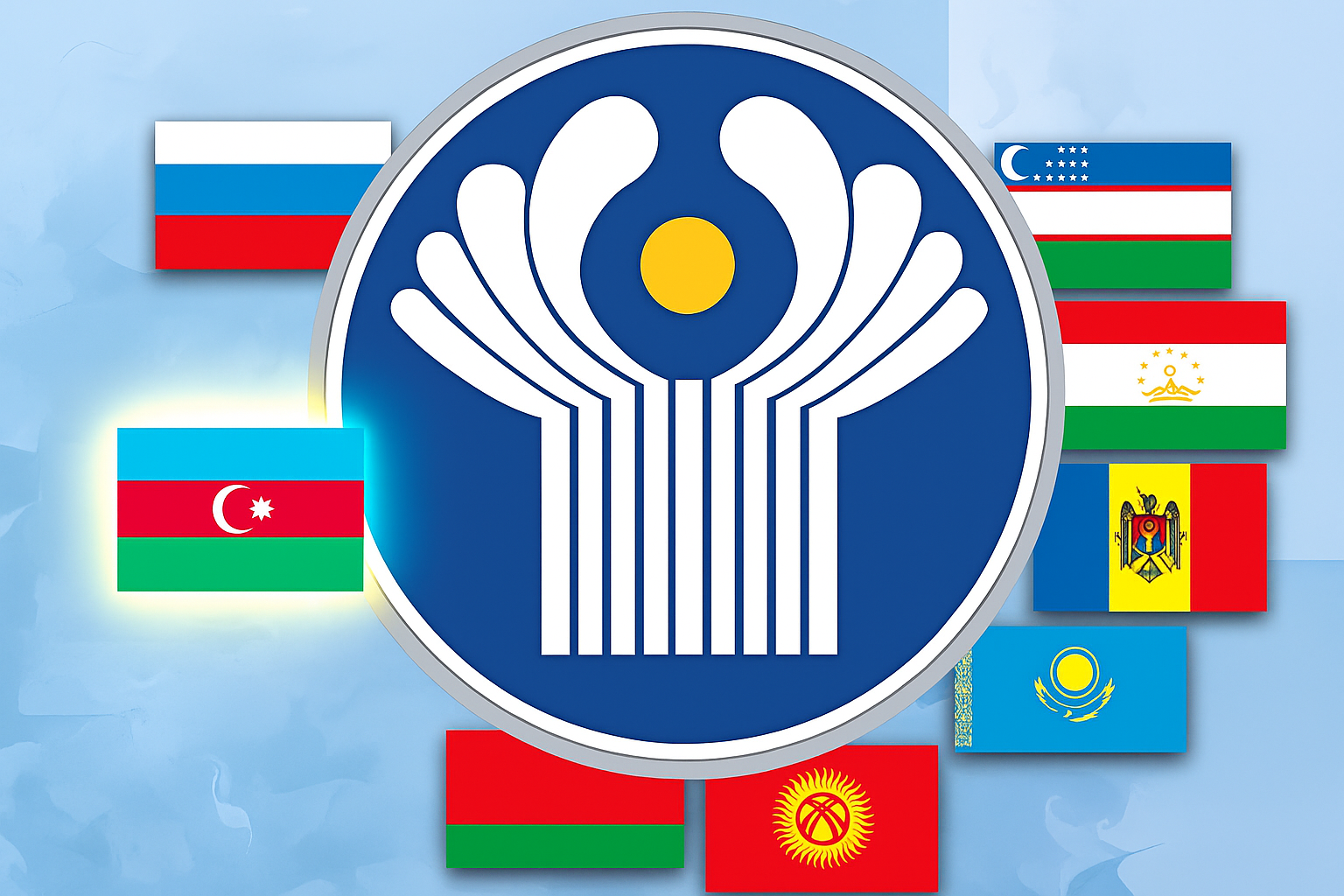CIS at turning point: emerging dynamics and Azerbaijan’s place

In the evolving landscape of global politics, few regions illustrate the complexity of transformation as vividly as the post-Soviet space. More than three decades after the collapse of the USSR, the newly independent republics continue to navigate a delicate balance between sovereignty and dependence, reform and inertia. The Commonwealth of Independent States (CIS), established as a mechanism to preserve cooperation among former Soviet republics, has gradually turned into a reflection of these contradictions — an organization caught between nostalgia for the old order and the search for a new identity.
Among these, the Commonwealth of Independent States (CIS) became both a symbolic and practical instrument for Russia to preserve its influence over the former Soviet republics. Yet only a few of these states managed to turn post-Soviet challenges into opportunities. Azerbaijan stands out as a remarkable example: despite the devastating consequences of war, occupation, and nearly one million refugees and internally displaced persons, it has transformed into one of the most successful and stable countries in the region.
Azerbaijan not only restored its territorial integrity through military strength and diplomatic resolve but also reintegrated its liberated lands into the national economic framework. Today, peace in the South Caucasus brings dividends that extend beyond the region itself. Baku’s stability and development have generated new political and economic realities, opening vast opportunities for trade, investment, and regional cooperation.
Following its victory, Azerbaijan assumed the role of initiator in the peace process — one grounded in the principles of sovereignty and territorial integrity. The Washington meeting held on August 8 this year became a reflection of this success, symbolizing Azerbaijan’s diplomatic maturity and President Ilham Aliyev’s strategic leadership in regional affairs.
Today, President Ilham Aliyev’s visit to Dushanbe, at the invitation of Tajikistan’s President Emomali Rahmon, to attend the CIS Heads of State Summit marks another chapter in this evolving narrative. The summit, however, takes place under entirely new geopolitical circumstances.
Russia–Azerbaijan relations remain cautious and somewhat cool, though both sides express readiness to discuss accumulated issues — as confirmed in a positive tone by Kremlin Spokesperson Dmitry Peskov ahead of the Aliyev–Putin meeting in Dushanbe. Meanwhile, the long-standing Armenia–Azerbaijan conflict, once deemed insoluble, is nearing its conclusion. In Central Asia, a new dynamic is unfolding: countries of the region are rapidly deepening ties with the European Union, filling the strategic gap left by Russia, which remains entangled in its war against Ukraine. Political and economic interest in Central Asia has grown more sharply than at any time in the past three decades. This expansion of interests starts in the South Caucasus region. The CIS countries are just a few steps away from regional integration, and the one missing the opportunity in this process appears to be its founder, Russia.
In fact, Azerbaijan has become a key actor in this transformation. Through strengthening cooperation with CIS states — particularly those in Central Asia — it is positioning itself as a vital hub for trade, energy, and transport. This approach is a core element of Azerbaijan’s long-term strategy, which views CIS countries not merely as markets or transit partners, but as integral participants in shaping a single space of stability, energy cooperation, and connectivity stretching from the Caspian Sea to Europe.
Between January and August 2025, Azerbaijan’s trade turnover with CIS countries exceeded $5 billion, reflecting a steady upward trajectory. According to the State Customs Committee, this accounted for over 15 percent of Azerbaijan’s total trade turnover — a clear indication that Baku’s economic integration with the region continues to deepen. Yet for Azerbaijan, this cooperation transcends numbers. It is rooted in shared history, cultural proximity, and collective challenges — the very foundations of long-term regional partnership.
Under Azerbaijan’s leadership, initiatives that once existed only on paper have evolved into tangible projects with measurable impact. Transport corridors connecting East and West, cross-border energy networks, and the rise of the Organization of Turkic States all represent the broader architecture of a new regional order. Interestingly, while these integrative processes expand, it is Russia, once the architect of post-Soviet unity, that now hesitates to fully engage.
The landscape is changing. A new phase has begun, marked by strategic pragmatism and the redefinition of interests. Russia, while still capable of influencing outcomes, can no longer unilaterally dictate them. The regional "chessboard" is vast, and the objective for every player is to secure maximum advantage — but increasingly on their own terms.
The future of the post-Soviet region lies not in isolation or submission but in what can be called sovereign pragmatism — the ability of each state to derive benefit from global engagement without compromising its independence. The foundations are shifting, from military-security paradigms to economic and monetary frameworks. Reforms are essential — not through the templates of Brussels or Moscow, but through nationally driven models that serve domestic needs.
Foreign prescriptions rarely bring lasting prosperity. True stability and progress come when nations pursue their own formula for success — when they take the best the world offers, but only within the limits of their sovereignty and self-interest.
The two-day CIS summit officially begins today in Dushanbe, providing a critical platform to assess the evolving dynamics within the post-Soviet space. As the discussions unfold, we will observe which alliances are reinforced and the likely direction of political and economic processes.
Here we are to serve you with news right now. It does not cost much, but worth your attention.
Choose to support open, independent, quality journalism and subscribe on a monthly basis.
By subscribing to our online newspaper, you can have full digital access to all news, analysis, and much more.
You can also follow AzerNEWS on Twitter @AzerNewsAz or Facebook @AzerNewsNewspaper
Thank you!

